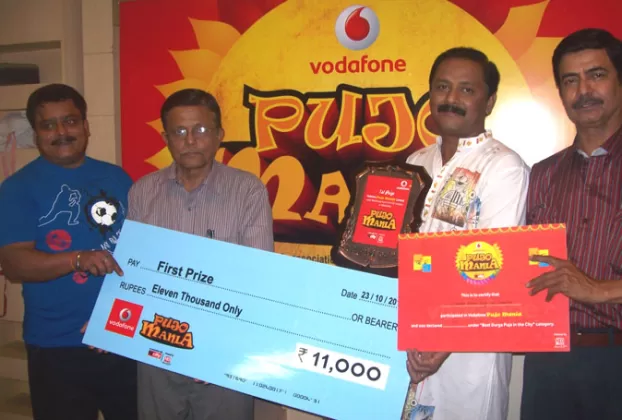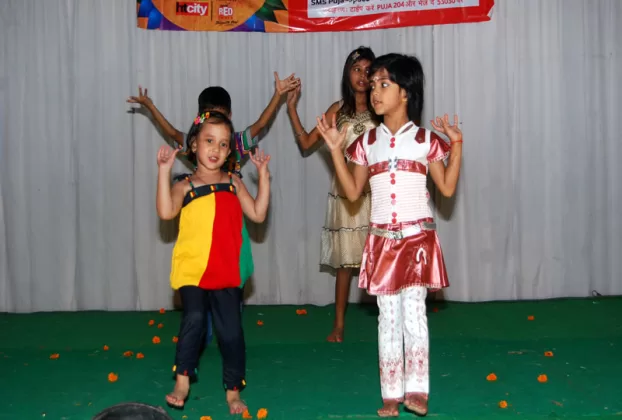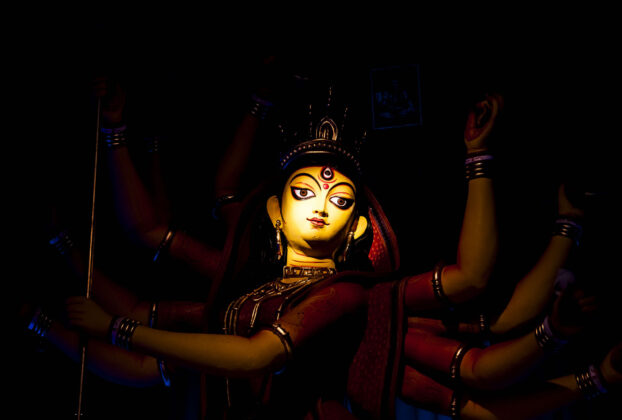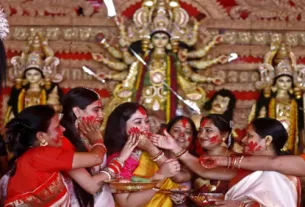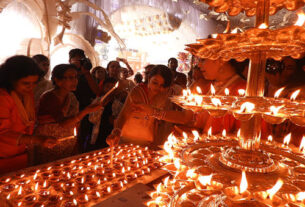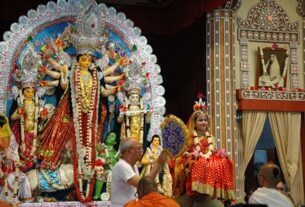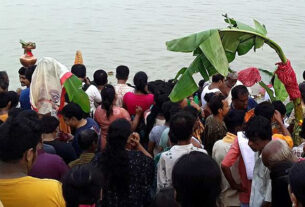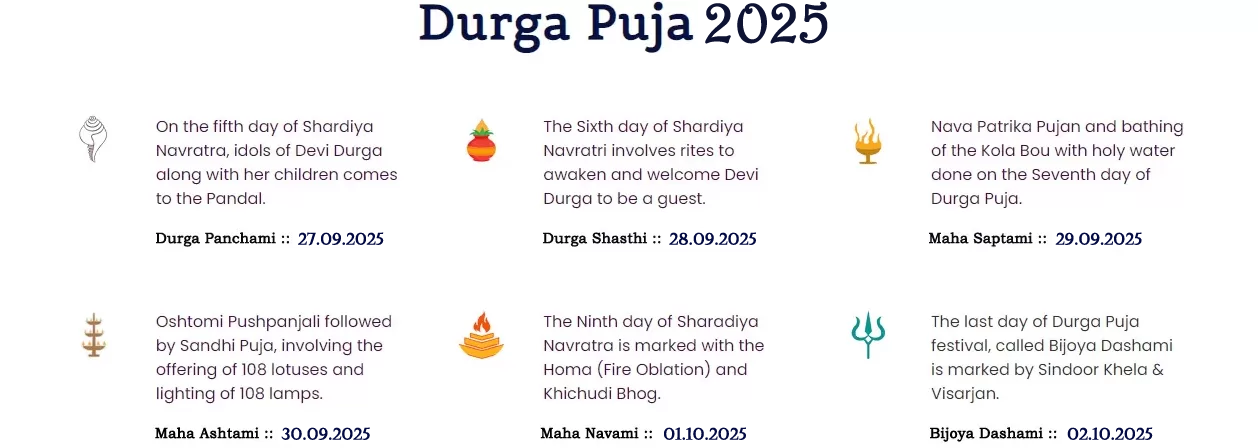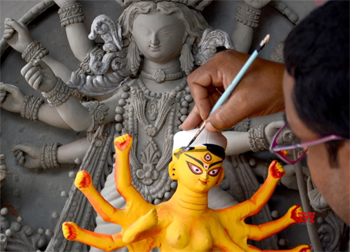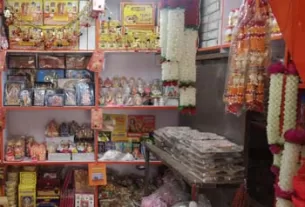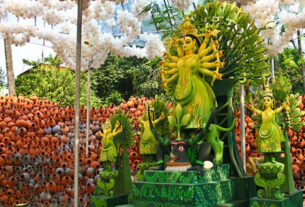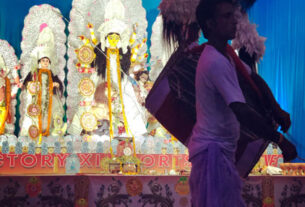About Durga Puja

Celebrated in the month of Ashshin (September – October), Durga puja (fondly referred to as Pujo) is one of the most awaited festivals in India, especially in West Bengal. Even though the weather starts becoming cooler, the air is thick with the warmth radiated by the devotees. he origins of the Devi as a deity are lost in the mists of time. Over time, we find mentions of the Goddess in various texts from the Vedic era and also in the Ramayana and Mahabharata. Even much later, Krittivasi’s rendition of Ramayana, composed in the 15th century, speaks of Durga being worshipped with 108 blue lotuses and 108 sacred lamps by Lord Rama before his battle with Ravana. The day that Lord Rama defeated Ravana is celebrated as Dussehra which falls on the tenth day (Dashami) of the Durga puja.
About Devi Durga

Daksha, the king of the Himalayas and the plains, and his wife, Menka, had a daughter called Uma. Uma, right from her childhood, started worshipping Lord Shiva as her would be husband. Shiva, being pleased with the worship of Uma, came to marry her. Daksha did not like this tiger-skin clad groom with ash & dirt spread over all of his body. Uma got married to Shiva but was prevented by her father from moving to Kailash, the abode of Shiva. Daksha, later on, arranged for a ‘Yagya’ where everyone except Shiva was invited. Uma, feeling ashamed of the behaviour of her father and shocked by the attitude meted towards her husband, immolated herself. Shiva came to know about this and went to Daksha’s house. He lifted the charred body of Uma on his shoulders and started dancing madly. Narayana came forward as a saviour and used his ‘Chakra’ to cut the Body of Uma into pieces, whose various parts of the body fell at several spots all through the Indian subcontinent and formed the sites of what are known as Shakti Peethas today. Shiva was finally pacified when the last piece fell off from his shoulder. Narayana revived sati as Uma for a new life. Ever since peace was restored, Uma, with her children, Ganesh and Kartik, and with her two ‘sakhis’ – Jaya and Bijaya, comes to visit her parent’s home each year during the season of ‘Sharat’ or autumn when Durga Puja is celebrated. In Bengal, Durga is worshipped as an affectionate yet powerful mother – she is the ideal protector that would give the people of Bengal the strength to overcome every hurdle in their life.






